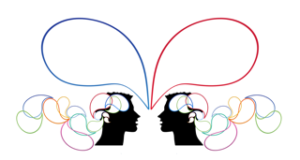May 25
Are You Right…or are You Guessing?
 As a self-proclaimed “hard core” New Englander I often brag about our weather’s unpredictability and how much I love it. On the flip side, I find it aggravating to live in an area where weather-people turn fast-moving flurries and passing rain showers into WARNING based weather alerts. I’m constantly saying to friends, “Isn’t it shocking weather ‘experts’ can be wrong so often and keep their job?”…but is it?
As a self-proclaimed “hard core” New Englander I often brag about our weather’s unpredictability and how much I love it. On the flip side, I find it aggravating to live in an area where weather-people turn fast-moving flurries and passing rain showers into WARNING based weather alerts. I’m constantly saying to friends, “Isn’t it shocking weather ‘experts’ can be wrong so often and keep their job?”…but is it?
I recently read a book that helps to explain the phenomenon of experts being wrong. The book Thinking, Fast and Slow by Daniel Kahneman lays out the argument that more professionals than we care to admit (or want to know) are guessing when it comes to finances, politics and so much more. This book offers a comprehensive understanding of the blind-spots built into our neurological process that make it difficult to produce logic-based decisions and accurately predict future outcomes. Ironically despite the proof we are wrong more often than we are right, our system of thinking makes us overconfident in our ability to do both.
“The ‘law of least effort’ says if there are several ways of achieving the same goal, people will eventually gravitate to the least demanding course of action.” Because of this and several other reasons cited in this book, our brain is constantly looking for the easiest way to achieve a desired outcome which means we tend to limit our reference points to information we already know. Although this process of filtering is efficient, our willingness to ignore what we don’t know dramatically impacts accuracy. According to Kahneman, “the unrecognized limit of professional skill helps explain why experts are often overconfident.”
In Kahnemen’s chapter, The Illusion of Validity, he highlights examples of professional overconfidence:
Fund Managers – “Mutual funds are run by highly experienced and hardworking professionals who buy and sell stock to achieve the best possible results for their clients. Nevertheless, the evidence from more than fifty years of research is conclusive: for a large majority of fund managers, the selection of stocks is more like rolling dice than playing poker. Typically at least two of three mutual funds do not achieve their own benchmark in any given year.” He continues, “More important, the year-to-year correlation between the outcomes of mutual funds is very small, barely higher than zero.” The reality is “professional investors, including fund managers, fail a basic test of skill: persistent achievement.”
Kahneman shares research by Nassim Taleb in his section on Political Predictions; “The illusion that we understand the past fosters overconfidence in our ability to predict the future.” To prove his point Taleb interviewed people who make their living commenting or offering advice on political and economic trends. He asked them to assess the probability certain events would happen in the near future. “The results were devastating.” Kahneman goes on to say, “people who spend their time, and earn their living studying a particular topic produce poorer predictions than dart-throwing monkeys who would have distributed their choices evenly over the options. Even in the region they knew best, experts were not significantly better than nonspecialists.”
After reading this book, I realized that I shouldn’t be so hard on the weather people. Thinking, Fast and Slow shows us it is difficult to accurately predict outcomes in many areas of life, and experts frequently make mistakes. I’ve barely scratched the surface of Kahneman’s insight into the human system of thinking by referencing one chapter of his book, but the real lesson from beginning to end is about our language around knowing, certainty, and expert advice. It’s important to consider our own fallibility and admit we don’t know what we don’t know.
 Laura Treonze, serves as Chief Life Strategist with LMT Consulting, which helps executives and teams create massive success through self-awareness. Her life-changing approach has transformed individuals and families and has redefined the way non-profits and corporations “do” business.
Laura Treonze, serves as Chief Life Strategist with LMT Consulting, which helps executives and teams create massive success through self-awareness. Her life-changing approach has transformed individuals and families and has redefined the way non-profits and corporations “do” business.